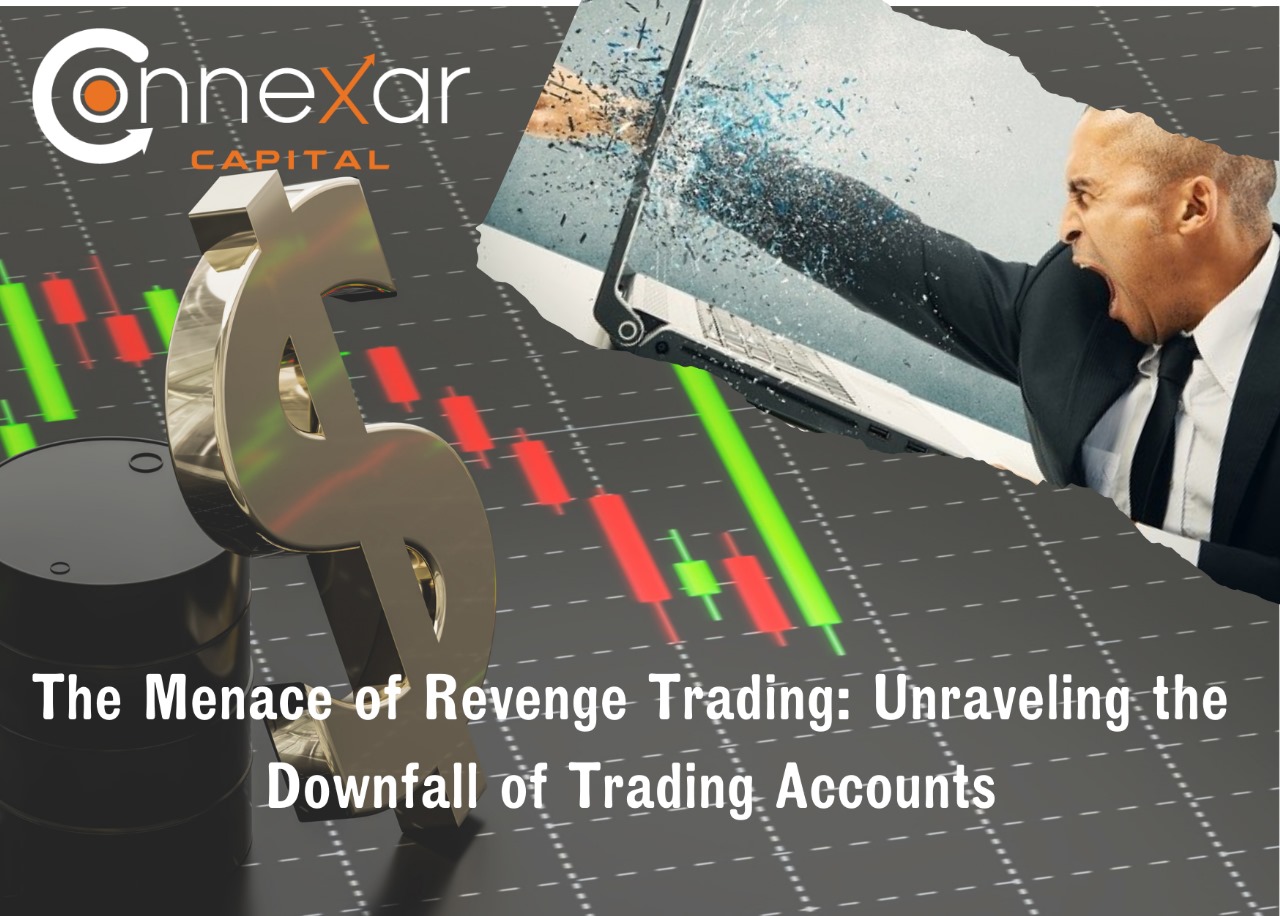
Introduction:
In the fast-paced world of financial markets, emotions can often cloud judgment and lead traders down a perilous path. One such treacherous journey that many traders find themselves on is known as revenge trading—a destructive force that can unravel even the most carefully managed trading accounts. In this blog, we'll explore the insidious nature of revenge trading and its profound impact on the financial well-being of traders.
The Psychology Behind Revenge Trading:
Revenge trading is a phenomenon rooted in the emotional response to previous financial losses. When faced with a setback, the instinct for some traders is to seek retribution by aggressively re-entering the market in an attempt to recoup their losses. However, this emotional response often leads to impulsive decision-making, further exacerbating the situation.
The Domino Effect on Trading Accounts:
As traders succumb to the allure of revenge trading, the consequences begin to unfold. Impulsive trades, increased risk-taking, and a departure from sound trading strategies can quickly result in a cascade of losses. The very act of seeking revenge becomes the catalyst for the downfall of once-healthy trading accounts.
Breaking the Cycle:
To shield trading accounts from the destructive power of revenge trading, it is crucial to recognize the signs of emotional trading and implement strategies to break the cycle. This may involve setting strict risk management rules, taking breaks to cool off after losses, and seeking the guidance of mentors or professionals to gain a fresh perspective.
The Importance of Discipline:
Discipline emerges as a key antidote to revenge trading. Developing a disciplined approach to trading involves sticking to a well-thought-out trading plan, adhering to risk management principles, and resisting the urge to let emotions dictate financial decisions. Discipline acts as a protective barrier against the impulsive actions that revenge trading thrives upon.
Learning from Mistakes:
Rather than succumbing to the destructive cycle of revenge trading, savvy traders use setbacks as learning opportunities. Analyzing the reasons behind losses, identifying areas for improvement, and adjusting strategies accordingly can transform setbacks into stepping stones toward long-term success.
Conclusion:
The menace of revenge trading poses a real threat to the stability of trading accounts. By understanding the psychological underpinnings of this destructive behavior, implementing disciplined trading practices, and learning from mistakes, traders can safeguard their financial well-being and navigate the markets with resilience and wisdom. It's not just about avoiding revenge trading; it's about cultivating a mindset that fosters sustainable success in the dynamic world of trading. 🌐💼